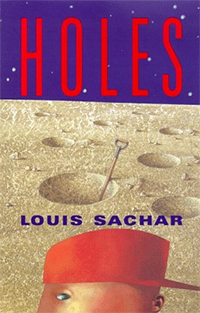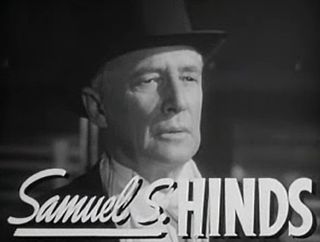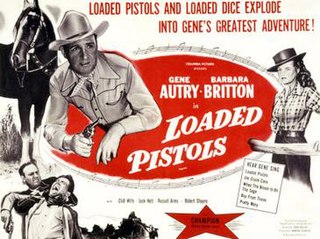
Scouting in Mississippi has a long history, from the 1910s to the present day, serving thousands of youth in programs that suit the environment in which they live.

Scouting in North Carolina has a long history, from the 1910s to the present day, serving thousands of youth in programs that suit the environment in which they live.
Scouting in New Jersey has a long history, from the 1910s to the present day, serving thousands of youth in programs that suit the environment in which they live. The second Boy Scouts of America National Headquarters was in North Brunswick, although it was referred to in BSA publications as being in neighboring New Brunswick.

Warren Steed Jeffs is an American cult leader who is serving a life sentence in Texas for child sexual assault following two convictions in 2011. He is the president of the Fundamentalist Church of Jesus Christ of Latter-Day Saints, a polygamous cult based in Arizona. The FLDS Church was founded in the early-20th century when its founders deemed the renunciation of polygamy by the Church of Jesus Christ of Latter-day Saints to be apostate. The LDS Church disavows any relation between it and the FLDS Church, although there are significant historical ties.

Holes is a 1998 young adult novel written by Louis Sachar and first published by Farrar, Straus and Giroux. The book centers on Stanley Yelnats, who is sent to Camp Green Lake, a correctional boot camp in a desert in Texas, after being falsely accused of theft. The plot explores the history of the area and how the actions of several characters in the past have affected Stanley's life in the present. These interconnecting stories touch on themes such as labor, boyhood and masculinity, friendship, meaning of names, illiteracy, elements of fairy tales, and racism.

Summer Camp Nightmare is an American 1987 thriller film directed by Bert L. Dragin and starring Chuck Connors and Charlie Stratton. The film is based on the novel The Butterfly Revolution by William Butler.
Yogi's Great Escape is a 1987 animated made-for-television film produced by Hanna-Barbera as part of the Hanna-Barbera Superstars 10 series. The two-hour film aired in syndication.

Since Scouting began in 1907, it has entered into many elements of popular culture, including movies, TV and books.

Hot Lead and Cold Feet is a 1978 American comedy-Western film produced by Walt Disney Productions and starring Jim Dale, Karen Valentine, Don Knotts, Jack Elam and Darren McGavin.

The Manly Selective Campus of the Northern Beaches Secondary College is a government-funded co-educational academically selective secondary day school, located in North Curl Curl, a suburb on the Northern Beaches of Sydney, New South Wales, Australia.

Samuel Southey Hinds was an American actor and former lawyer. He was often cast as kindly authority figures and appeared in more than 200 films in a career lasting 22 years.

Suppose They Gave a War and Nobody Came is a 1970 American drama-comedy film directed by Hy Averback, produced by Fred Engel, and starring Brian Keith, Don Ameche, Tony Curtis, Ernest Borgnine, Suzanne Pleshette, Ivan Dixon, and Pamela Britton. The plot is a mixture of comic and dramatic elements and concerns the reactions of a number of World War II veterans to the contemporary US Army.

Alfred Hitchcock Presents, sometimes called The New Alfred Hitchcock Presents, is an American television anthology series that originally aired on NBC for one season from September 29, 1985 to May 4, 1986, and on the USA Network for three more seasons, from January 24, 1987, to July 22, 1989, with a total of four seasons consisting of 76 episodes. The series is an updated version of the 1955 eponymous series.

Girl Trouble is a 1942 American comedy film made by 20th Century Fox, directed by Harold D. Schuster, and starring Don Ameche and Joan Bennett. It is also known as Between You and Me and Man from Brazil.
Bob Glaub is an American bass player and session musician. He has played with such artists and bands as Dave Mason, Journey, Steve Miller Band, John Fogerty, Bruce Springsteen, Bob Dylan, Neil Diamond, Jerry Lee Lewis, Ringo Starr, Dusty Springfield, Aaron Neville, Linda Ronstadt, Stevie Nicks, Jackson Browne, Warren Zevon, Donna Summer, John Lennon, Rod Stewart, Crosby, Stills & Nash Bee Gees and many others.

Loaded Pistols is a 1948 American Western film directed by John English and starring Gene Autry, Barbara Britton, and Chill Wills. Written by Dwight Cummins and Dorothy Yost, the film is about a cowboy who protects a young man wrongly accused of murder, while trying to find the real badguys.

Baby Blue Marine is a 1976 American drama film set during World War II that was directed by John D. Hancock and starring Jan-Michael Vincent. The feature film was produced by Aaron Spelling and Leonard Goldberg.

Yodelin' Kid from Pine Ridge is a 1937 American Western film directed by Joseph Kane and starring Gene Autry, Smiley Burnette, and Betty Bronson. Based on a story by Jack Natteford, the film is about the son of a Southeastern cattleman who becomes entangled in a war between the cattlemen and "turpentiners" who make their living harvesting pine tree sap.
Trail of the Vigilantes is a 1940 75-minute black-and-white Western comedy directed by Allan Dwan, written by Harold Shumate, and featuring Franchot Tone, Warren William, Broderick Crawford and Andy Devine.















